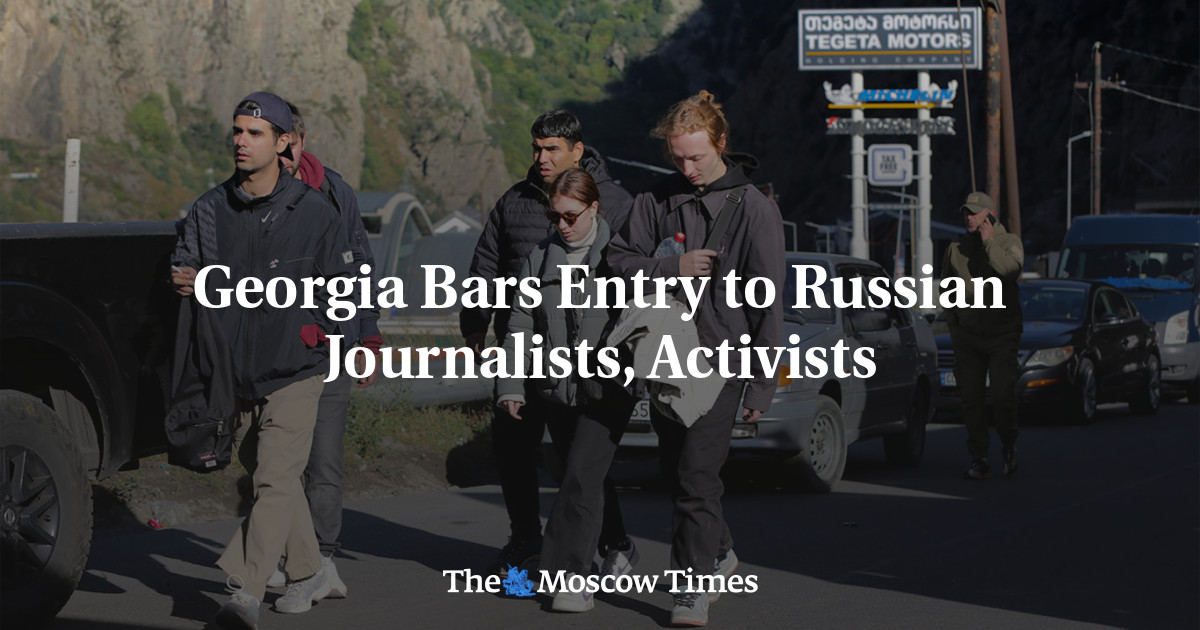
Border guards in the South Caucasus nation of Georgia have denied entry to at least six independent Russian journalists and activists in the past two weeks, the Agentstvo investigative news website reported Wednesday.
Ex-Soviet Georgia, which shares a land border with Russia, became a popular relocation destination for anti-war Russians following the February invasion of Ukraine. But Georgian authorities have blocked a number of Russians from entering since at least late summer.
Georgia appears to have resumed its entry bans on Nov. 1, Yegor Kuroptev, who heads the South Caucasus branch of the Free Russia Foundation which helps Russian activists relocate abroad, told Agentstvo.
Pussy Riot protest group member Veronika Nikulshina said she was held up at the border for two hours and ultimately turned away on Nov. 1 despite having a six-month lease agreement in Georgia.
Fellow Pussy Riot member Gala Latygovskaya, who also works at the independent Mediazona news website, said she was put on a return flight without any explanation from border guards the next day.
Several members of the anti-Kremlin collective are based in the Georgian capital of Tbilisi.
Yekaterina Arenina, a journalist with the Proekt investigative outlet which is banned in Russia, said she was turned around at the Russian-Georgian border this Monday.
“It’s so cool when a state publicly condemns Russia and the war, and non-publicly bans those who oppose the war based on lists sent from Russia,” Arenina wrote on Twitter.
Kuroptev told Agentstvo that three more unnamed Russians with long-term housing contracts in Georgia have been denied entry in the past two weeks.
He said it was not immediately clear what caused the latest wave of refusals.
The activist noted that a number of previous refusals were lifted “after additional clarifications about the purpose of visits and other details.”
Georgian President Salome Zourabichvili said 700,000 Russians have arrived in her country since President Vladimir Putin announced a “partial” mobilization of reservists to fight in Ukraine in late September. She said around 100,000 of them remained in Georgia.